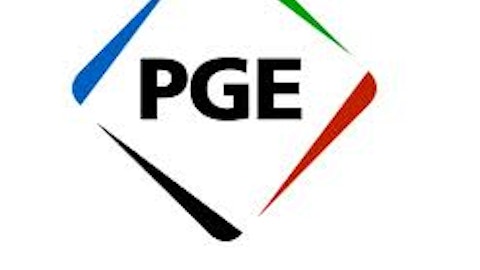
Powerful ownership
The interesting thing about China Mobile Ltd. (ADR) (NYSE:CHL) and China Unicom (Hong Kong) Limited (ADR) (NYSE:CHU) is that they in fact both have the same ownership. Both of them are owned by the government of the People’s Republic of China. They are run separately but they both are state-owned. It is quite fascinating that two state-owned companies would be competing with each other in the same market for the same customers. For outside shareholders this means that both companies have the backing of the government, which keeps outside competitors out of the market. For outside investors that means that both China Unicom and China Mobile are guaranteed a large market share in the Chinese wireless communications market.
While both of them enjoy very large market share, both China Mobile Ltd. (ADR) (NYSE:CHL) and China Unicom have had weak results recently. China Mobile is much bigger, with a market capitalization of $206 billion, as opposed to China Unicom (Hong Kong) Limited (ADR) (NYSE:CHU) with a market capitalization of $31 billion. China Mobile is down 10.81% year to date, while China Unicom is down 16.98% year to date–though China Unicom is up 3.81% this quarter while China Mobile is down 1.78%.
While there is no other wireless communications company to compare to in China, the results of both companies are not great compared to SK Telecom Co., Ltd. (ADR) (NYSE:SKM) from neighboring South Korea, which has had great results recently. SK Telecom is up 31.52% year to date and 14.96% this quarter. Also, SK Telecom does not enjoy the benefit of guaranteed market share that being government-owned affords, and SK Telecom faces more competition than either China Mobile Ltd. (ADR) (NYSE:CHL) or China Unicom (Hong Kong) Limited (ADR) (NYSE:CHU).
The large domestic market
China Mobile is currently the biggest wireless communications company in the world by subscribers, with around 703 million subscribers–more than twice the population of the United States. China Unicom, on the other hand, has 222 million subscribers. China Mobile Ltd. (ADR) (NYSE:CHL) is both bigger in terms of subscribers and in terms of reach than China Unicom. According to this report by Fast Business Research, the Chinese wireless communications market is still only at 80% saturation. Both China Mobile and China Unicom (Hong Kong) Limited (ADR) (NYSE:CHU) have plans to increase the coverage of rural areas of China, where there are fewer cell phone users. The big cities such as Beijing, Shanghai and Guangzhou are already more or less saturated, so China Mobile and China Unicom have begun to focus on smaller cities and rural areas. One possible concern is that it is unknown whether China Mobile and China Unicom will be able to make any profit on these rural customers, at least in the short term.
According to the report by Fast Business Research, this growth would involve investing in infrastructure, which of course costs money in the short term. China Mobile Ltd. (ADR) (NYSE:CHL) is spending a large percentage of its 2013 capital expenditure budget (42%) on investing in its infrastructure. While this investment will be costly in the short term, in the long term this is being undertaken in order to increase the capacity in order to accommodate new customers and increase the speed for existing customers.




